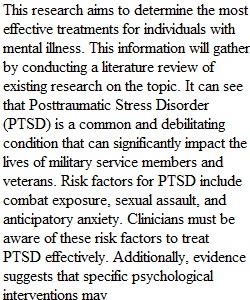


Q Revised Argumentative Research Paper - Submit your assignment through the link above. Based upon feedback received from your peers and from me on your previous drafts, edit, revise and extend your research paper so that the paper without the cover page and references/works cited pages has a minimum of 10 double-spaced pages (a minimum of 2500 words) and adheres to the following guidelines: General Items 1. Effective and academic word choice, grammar, usage and punctuation. 2. Sentences that communicate both simple and complex ideas clearly without fragments and subject/verb confusion. 3. Evidence of proofreading, e.g., non-existent to minimal misspellings and odd errors. 4. Multiple paragraphs of varying lengths, from three to nine sentences or more 5. Avoidance of personal pronouns, e.g., I, you, us, we, our. 6. All quotes are introduced, presented in quotation marks and explained as well as cited in-text and in the Works Cited or References page. 7. All paraphrases are cited in-text and in the Works Cited or References page. 8. Transitions between paragraphs and among required sections of the paper. 9. MLA or APA document style, i.e., all elements should be presented consistently. 10. Compelling and informative title in appropriate title case capitalization. Introduction 1. One, clear paragraph containing: a. Compelling quote, statistics, story and/or a combination of the aforementioned to capture the attention of your reader. b. Discussion of the significance of the topic and your paper's approach to the topic, which may include questions, statements of strategy, and/or quotes/statistics. c. Complete, clear and compelling thesis statement. Background Information 1. Multiple paragraphs (typically between five and eight) of varying lengths in which you provide fact-based information necessary for your audience to understand your topic, such as: a. Definitions of all key terms from the thesis. b. Historical context, events and chronology. c. Legal decisions and political movements. d. Important people/groups and places. e. Geographical and demographic data. Note: All of the information must be cited from credible sources. Argument 1. Multiple paragraphs (typically between eight and twelve) of varying lengths in which you present evidence, counterarguments and rebuttals in support of each part of your thesis, i.e., all of the claims you make in the first paragraph of the paper must be proven with credible evidence. 2. Note: Fewer paragraphs than eight usually indicates inadequate support of the thesis; however, this is not always true. Conclusion 1. A minimum of two paragraphs in which you provide: a. A clear restatement of the thesis, in new language, and a summary of the best evidence you presented to prove your thesis. b. In the case you did not prove your thesis or found it lacking, you should discuss this here. c. Recommendations for future research; additional questions to consider; calls to action; solutions to problems presented; and, any other materials deemed relevant to the topic and your thesis Works Cited MLA-formatted Works Cited or APA-formatted References page: 1. All sources organized alphabetically by author's last name. 2. If there is no author, then alphabetical by the title. 3. A minimum of ten book/eBook and/or database sources. Note: You may use as many sources in excess of the required number above. You may not use Wikipedia or about.com or other encyclopedic or dictionary sources. See these resources for additional support in preparing your research paper: 1. Writing a Research Paper 2. (APA style Sample) 3. (MLA style Sample)
View Related Questions